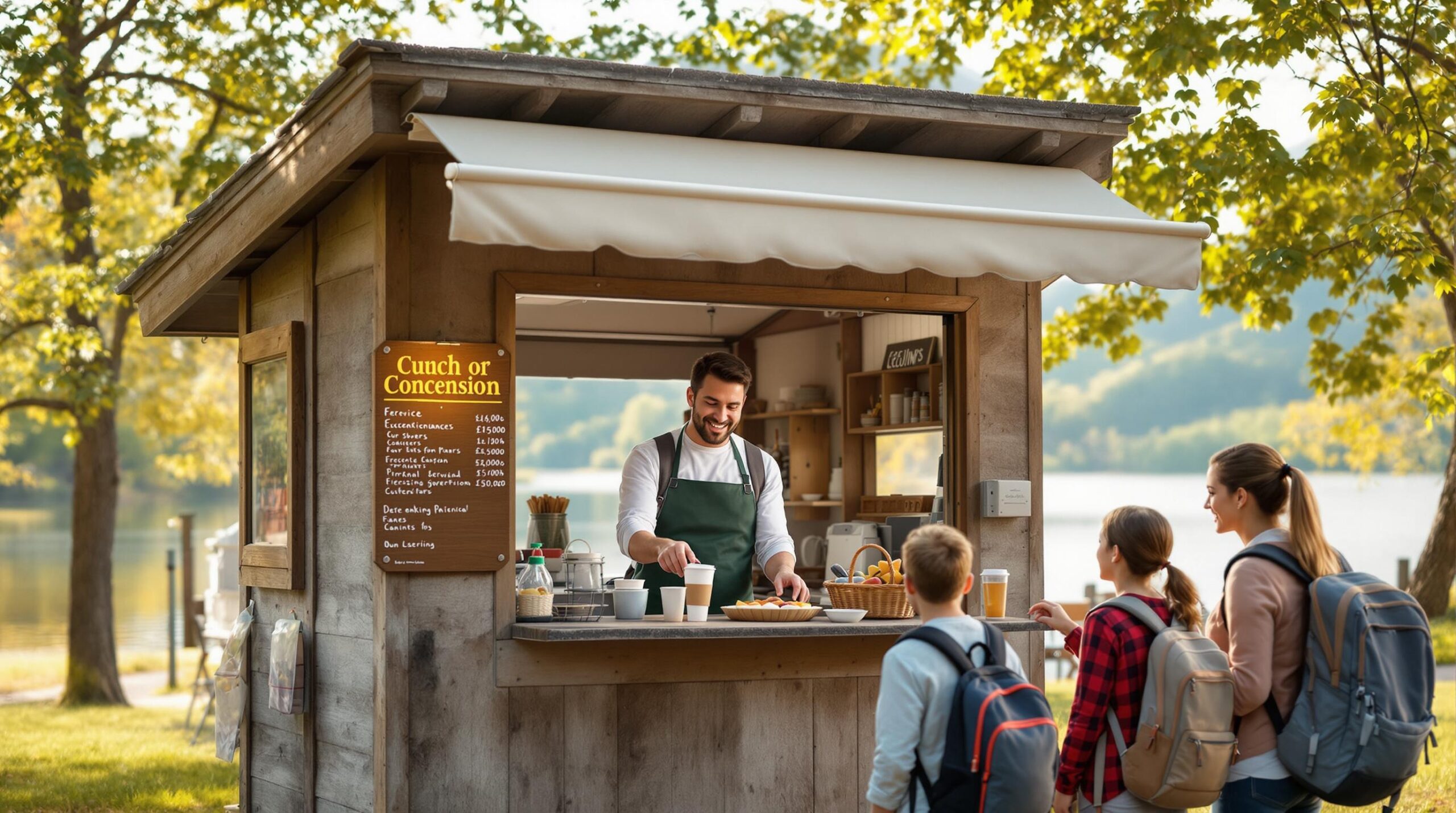The Connecticut Department of Energy and Environmental Protection has issued a request for proposals seeking food-service operators for concession buildings at Gillette Castle, Lake Waramaug and Mount Tom state parks, with proposals due May 29, 2025.
The solicitation is part of a wider effort to grow Connecticut’s $5.5 billion outdoor-recreation economy, which expanded 9.2% in 2023—outpacing the national average—by improving visitor amenities and tapping private expertise, according to a DEEP release.
The RFP, listed as DEEP04212025MM, covers the concession at Gillette Castle State Park in East Haddam, a dual camp store and snack bar at Lake Waramaug State Park in Kent that serves a 73-site seasonal campground, and the stand at Mount Tom State Park in Litchfield.
Interested firms must file through Connecticut’s CTsource system and can direct questions to DEEP Parks Division representative Tenia Seay at 860-424-3064 or [email protected]. “Connecticut’s incredible State Parks provide many wonderful ways to experience the outdoors. Thanks to the Passport to the Parks program and Restore CT State Parks initiative, we continue to invest in our parks to meet the growing demand for outdoor experiences,” Katie Dykes, DEEP commissioner, said May 2.
The concessions effort runs under DEEP’s Partnerships in Parks Initiative, designed to elevate recreation, spur tourism and improve equity in access. Recent pilots include paddlesport rentals at Lake Wintergreen and Squantz Pond, plus food-truck service at Gillette Castle and Dinosaur State Park.
Officials are still accepting new concepts through an ongoing RFI, signaling room for campground and RV-park operators to expand beyond private property.
Prospective bidders should do the visitation homework before sizing menus and staffing; package kayak or bike rentals with burgers and cold drinks to diversify revenue; arrive at negotiations with ServSafe credentials, liability insurance and any fire-safety permits in hand; cross-train seasonal staff so one hire can float between concession, camp store and light maintenance; and build a pro forma targeting a 30-to-35% cost of goods sold before locking in the menu.
Connecticut has backed its parks push with $80 million in capital investments since 2022 as part of the Restore CT State Parks initiative, a Passport to the Parks program that lets Connecticut residents park at state parks without paying daily fees and is financed by a $10 charge automatically added to biennial motor-vehicle registrations. DEEP also launched the Office of Outdoor Industry & Experiences last year, led by Jeff Shaw.
“The numbers speak for themselves. Connecticut’s outdoor recreation economy grew by double-digits on average over the last three years, thanks to our beautiful, welcoming, and historic State Parks, which have experienced a surge in visitation since the Covid-19 pandemic. I look forward to exploring additional partnerships to continue expanding outdoor recreation opportunities in Connecticut,” Shaw said May 2.
Lake Waramaug’s inclusion of a camp store opens room for modern concession strategies. Mobile ordering with pickup shelves can shorten lines, hyper-local snacks can highlight nearby producers, and experience bundles such as s’mores kits or sunrise coffee packs can increase per-guest spending.
Compostable serviceware that matches environmental messaging and rainy-day items—ponchos, board games or quick clinics—can help steady cash flow when trails are closed.
Meanwhile, the Town of Fairfield has an RFP out for a seasonal snack-bar operator at Lake Mohegan, and the City of New Haven is recruiting food, beverage and novelty vendors for six park venues through its New Haven notice, underscoring statewide momentum toward public-private food-service deals.
“Continued investments combined with new partnerships with the private sector and increasing participants will boost Connecticut’s economy by adding outdoor recreation opportunities in Connecticut State Parks,” Dykes said.
Proposals for the three-park concession package must reach CTsource by 2 p.m. May 29. Full documents are on the bid board, and operators can direct questions to [email protected] or [email protected].
For food-service and outdoor-hospitality businesses, the concessions push offers a low-cost avenue to tap rising visitation, test new retail concepts and extend brand reach across some of Connecticut’s busiest public lands.


